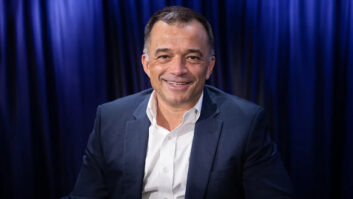The strike by Hollywood actors will have a wide-ranging impact on the global TV and film production industry, analysts have warned.
Last night, actors’ union SAG-AFTRA announced its members are officially on strike after it failed to reach an agreement with the Alliance of Motion Picture and Television Producers. The stoppage is expected to impact 160,000 union members.
SAG-AFTRA president Fran Drescher said, “SAG-AFTRA negotiated in good faith and was eager to reach a deal that sufficiently addressed performer needs, but the AMPTP’s responses to the union’s most important proposals have been insulting and disrespectful of our massive contributions to this industry.
“The companies have refused to meaningfully engage on some topics and on others completely stonewalled us. Until they do negotiate in good faith, we cannot begin to reach a deal. We have no choice but to move forward in unity, and on behalf of our membership, with a strike recommendation to our National Board. The board will discuss the issue this morning and will make its decision.”
Analysts have suggested that the impact of strikes by both the writers’ and actors’ unions could see the global TV and film production industry take a $4 billion hit.
The strikes will not just hit Hollywood. Productions in the UK and Europe have already been shutdown. Ridley Scott’s Gladiator 2, which has been filming in Morocco, ceased production yesterday, and Sky series The Day of the Jackal, starring Eddie Redmayne and Lashana Lynch, which has been shooting around Central and Eastern Europe and is expected to pause production. In the UK, actors union Equity has said it “stands full square behind our sister union in their claim and the action their board have agreed to take. Equity too is experiencing bullish engagers attempting to undermine its collectively bargained agreements. SAG-AFTRA has our total solidarity in this fight.”

The shutdown will impact large parts of the UK production industry, analyst Fred Black from Ampere Analysis tells TVBEurope. “The strike impacts everybody in the industry,” he says. “If you’re a camera operator, you need an actor and someone to have written their lines.
“There’s going to be a huge amount of strife for other groups [of workers] as well. With the writers’ strike, we’ve seen some of the other workers express their support and refuse to go to work in solidarity with a writer, even though they’re not part of that union. But it’ll be a question about how far they’re willing to see that pushed.”
Black adds that the UK production centre is hugely dependent on major TV series and films using its studio facilities. “I think the strikes are going to expose some weaknesses in our domestic content production, and how much we really are propped up by big American firms,” he states. “We’re going to see a global effect that’s going to it’s going to hurt people all over the world.”
While many viewers were aware of the writers’ strike, Black believes actors stopping work will see the negotiations cut through into the mainstream. “You can’t ignore the star power that the actors’ strike brings,” he adds. “There was a letter published a couple of weeks ago about the intention to strike and some major names signed it, including Pedro Pascal, Jennifer Lawrence and Meryl Streep. The public perception will change a lot with such household names going on strike.”
The terms of the actors’ strike include no promotion for projects that have already been completed (last night saw the cast of Oppenheimer leave the UK premiere once the strike was called). It could also impact the forthcoming Emmy Awards, which are currently scheduled for 18th September.
“Normally that’s a massive secondary push for those TV shows,” he explains. “If the Emmys go in their usual date, it’s quite likely we’ll still be in a strike situation and there’ll be nobody there. So there’s all sorts of those kinds of promotion opportunities that are really going to be lacking.”
The writers’ strike began in May, which led to a lot of projects shutting down. The two unions joining forces may not impact content immediately, but viewers are likely to see less drama and comedy towards the end of 2023/early 2024. The last writers’ strike in 2007 is often credited with starting the boom in reality TV, and Black says that while there’s probably not much more content reality TV producers can create, the industry is already seeing US TV networks and streamers turning to the genre to fill programming gaps. “There’s an opportunity there for international acquisitions,” he adds. “However, the number of high-quality international acquisitions that don’t already have a global streaming deal is quite low. So those shows that don’t have one of those deals in the US already are going to be snapped up really quickly.
“I think lot of the members of the AMPTP were probably planning their international acquisitions with that in mind six-nine months ago, thinking we may need this content towards the end of 2023. Or at least they should have been. If they weren’t, that was a mistake.”
Another option could be sport, although most of the top-tier sports already have TV deals, notes Black. “Whether you can pick up sports rights that are going to really engage an audience at such short notice is the key question. But if there are any sports rights kind of lying about in the US, I think they would be picked up pretty quickly.”
He adds that ancillary sports content could be an option for producers. During the pandemic, the industry saw an increase in the number of sports documentaries released. “It was a case of producers using stockpiled footage and a couple of talking heads,” adds Black. “You can still make that content without writers and actors. You may need a writer for a voiceover but it might be possible to get a non-union writer for that kind of work. We could see that content come back slightly, although, one problem there is that it’s never really gone away.
“It’s difficult to see where the extra content is going to come from,” he adds. “What we’re likely to see is just less content. We’re already seeing a massive drop in the number of commissions in the US. It was down something like 30-40 per cent in the second half of last year. And it’s down something similar in the first half of this year. The strike’s obviously had some impact on that, but we were already going to be seeing a lot less scripted content on our screens before this before that happened.”
One area where the streamers could find programming to entice audiences is in their catalogue of content. “Lots of these companies have libraries of content that aren’t on their streaming services that they can recycle,” explains Black. “You’ve also got opportunities around what you display on your homepage, so you can make content seem fresh, even when it’s not, which I think is one way that the streaming services really weathered the pandemic quite well. You can show content that the viewer hasn’t seen before, even if it’s not new. You can make it look new to them.
“I think over the six months or so, [the streamers will] have enough content to rotate to be OK. And they’re not going to have to be competing with linear channels, which are the ones that are really going to struggle. Repeats on a linear channel are not the same as older content on streaming services,” he adds.







